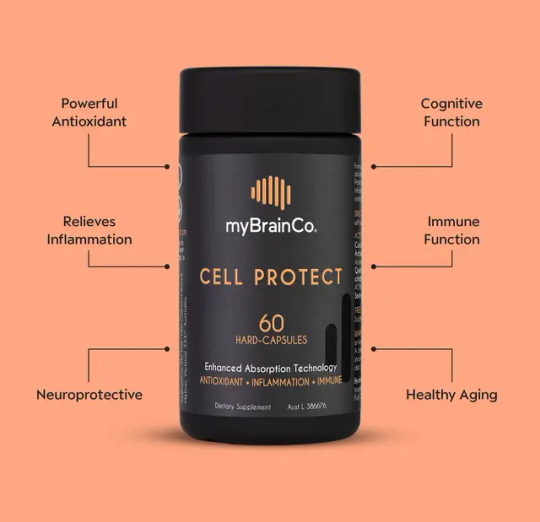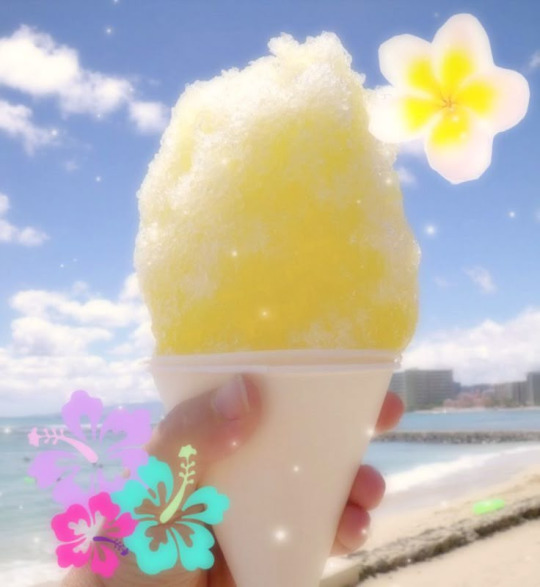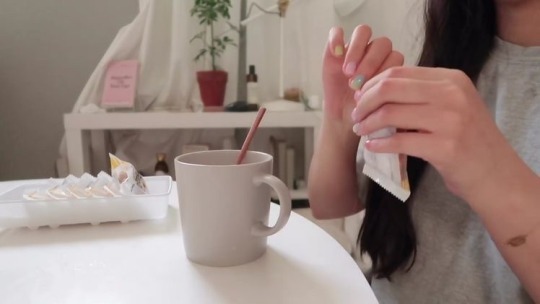#Supplements to reduce inflammation
Explore tagged Tumblr posts
Text
BonAyu Turmeric Curcumin Strips: Easy, Natural Support for Inflammation and Heart Health
Staying healthy means keeping your body free from inflammation and giving your heart the care it deserves. BonAyu Turmeric Curcumin Extract Strips make this easier than ever. These small, mouth-dissolving strips deliver a strong dose of curcumin (from turmeric) and piperine (from black pepper) in seconds. With a light chocolate-orange taste, they are perfect for daily use and fit into any routine.
What’s Inside Each Strip?
Each serving (3 strips) includes:
250mg of Curcumin — a powerful natural ingredient found in turmeric
2.5mg of Piperine — from black pepper, which helps your body absorb curcumin better
31.5mg of Vitamin C — supports immunity and skin health
You don’t need water or pills. Just place the strip on your tongue and let it melt.
Key Benefits of BonAyu Turmeric Strips
1. Natural Inflammation Relief Curcumin is one of the Best Natural Anti-Inflammatory Supplements. These strips may help reduce swelling in the joints and muscles, especially helpful for people with arthritis or soreness after workouts.
2. Heart and Circulation Support These strips help improve blood flow and support blood vessels. With daily use, they can help maintain a healthy heart.
3. Support for Women’s Wellness Curcumin has been shown to ease menstrual discomfort. It works by reducing certain signals in the body that cause pain.

Why Choose BonAyu?
Unlike pills or powders, BonAyu strips are:
Fast-absorbing
Sugar-free
Low in calories
Gluten-free
Lactose-free
They dissolve directly into your bloodstream, giving your body quicker access to the nutrients. This makes them one of the top supplements for inflammation and immunity on the market.
Easy to Use, Easy to Carry
With 90 strips per pack, BonAyu makes wellness simple. You can take up to 3 strips per day. Just carry them in your pocket or bag, and use one anytime. No water, no chewing, and no mess.
They are perfect for:
Athletes recovering from workouts
People with joint pain
Anyone needing daily immune support
Women looking for relief from menstrual cramps
Those who want to take care of their heart and circulation naturally
How It Works
Turmeric contains a natural substance called curcumin, known for reducing inflammation. But curcumin is not easy for the body to absorb. That’s why BonAyu adds piperine — it increases curcumin’s effect.
This mix helps the body work better from the inside out. The oral strip format allows these ingredients to skip digestion and go straight into the bloodstream. That means faster results and better absorption.
Final Thoughts
BonAyu Turmeric Curcumin Strips are a smart choice for anyone looking to reduce inflammation, boost heart health, or support daily wellness. If you’re looking for a natural anti-inflammatory, this is one of the most powerful options available in a modern format.
Each strip is small, clean, and packed with benefits — perfect for busy people who care about their health.
Ready to try them? Visit BonAyu UK and take your first step toward simple, natural wellness.
#Best natural anti-inflammatory supplement#Heart health supplement#Best turmeric for inflammation#Supplements to reduce inflammation#Turmeric for inflammation and pain#Most powerful natural anti-inflammatory#Curcumin with black pepper#Buy turmeric and black pepper#Best supplement for inflammation#Anti-inflammatory supplement#Best vitamins for inflammation#All-in-one anti-inflammatory formula#Oral turmeric supplement for circulation#Turmeric curcumin strips#Fast-absorbing curcumin strips
0 notes
Note
12, 22, 30!!! ❤️
Thanks for asking!
12. what’s some good advice you want to share?
Thought I'd go for something I've been trying to hold myself to personally here. I have no idea if this is particularly applicable to others to the same extent it is to me, but eh. Basically, it's incredibly easy sometimes to get fixated on your own mistakes, to try and mull over how you could have done things differently, to try and examine from all angles how it went wrong. The "what if"s essentially. And, don't get me wrong, you can often learn lessons from previous mistakes. And it can be healthy to vent or wallow occasionally. But oftentimes, it's just an excuse to wind yourself up further over what you could have done. To trip over yourself in guilt rather than looking at the present, which then just means you end up making the same mistakes -> why did I do that, I should know better -> rinse, repeat. So, if you're stuck on what-if scenarios and it's a case where you're not actually getting anything constructive out of it. (Namely, stuff like if you need to give an apology, if it's better to just leave it be, what you intend to do in a similar scenario if it arises, etc) If all it's achieving is making yourself feel worse? Stop. Just literally stop ruminating over it. And I know it's a lot easier to say that than *do* it, but the key thing is to catch yourself when you're doing the spiralling thing and just acknowledge that that's what's going on. Then try and move on. But at the same time, if you're not able to shut it off immediately, don't beat yourself up over it. Just recognising when you're in that zone is progress in of itself.
22. say 3 things about someone you love
This is more "loved" than "love" but I say it counts. So, my cat. - When it got cold in the winter and I was working from home, she would always come and sit on my lap and let me stroke her whilst I was doing stuff. Sometimes, she would get onto my lap by peeking up through the shelf intended for a printer and other times she would go straight over the desk. We had a system where when she wanted to leave, I'd spin the chair over to the bed and she'd walk from the desk over my lap to the bed to curl up and sleep. - One year, we got her a cat 'Christmas stocking'. It had a load of different things in it, but most importantly, it had these cat treats she really enjoyed. Unfortunately, we didn't realise she would be able to sus out what it was, so one day we got home and found the whole thing ripped open and scattered across the sides. After that, we made sure to hide any presents for her very carefully. - The only one of her toy type things we got her that she would actually use was the scratching post. If something had catnip in she'd get all big-eyed over it (which, no surprise, led to scratches), but anything else she'd just plain ignore. She was picky like that. I miss her.
30. what’s one thing that never fails to make you happy/happier?
I don't actually have any cheat code for this one. No guarantees so much as mitigations, but let's see. Hm. I think getting away from home for a bit is a big one. Just to change the environment up really (this applies doubly in autumn/winter when the weather and short days mean I spend most of my time inside). I'll often go find a nearby place that does hot chocolate and go sit there for a bit, listening to music if it's on in there or bringing my headphones along. If I've thought ahead I'll bring something to read as well. If the weather is nice there are some local areas to explore as well and some places that are fairly quiet. In the summer, you can head to the nearby graveyard and there's this abandoned chapel type building (unfortunately you can't get into it but you can go around it :<) and loads of crows and squirrels. I also as a general kinda happy thing rather than a cheering up kinda deal tend to like watching stuff with friends.
#roseofcards90#ask meme#asks#sorry this got kinda depressing and possibly a bit tmi#also. not featured in the good advice section is all the stuff I'm currently ignoring:#separate out where you sleep from where you work/do leisure activities. reduce caffeine consumption. try to regularly sleep at same time#in winter you need to actively seek more sunlight bc vit d. in the same vein other common deficiencies are iron/folate.#they're easily checked for w/ blood tests but also easy to obtain supplements for if you're fatigued + it's not too bad yet.#um. for periods or anything that involves inflammation it's better to use ibuprofen as it's a nsaid. for colds/headaches use paracetamol.#is better at tackling the displayed symptoms (tho doesn't really deal with the underlying causes) iirc? u can use paracetamol + ibuprofen#at the same time as they're two different types of painkillers. can't remember the other combos rn but those two are safe together.
3 notes
·
View notes
Text
Top 7 Supplements to Reduce Inflammation in the Body Backed by Science
Curcumin, the active ingredient in turmeric, is one of the best anti-inflammatory supplements available. It has been shown in numerous studies to block NF-kB, a molecule that triggers inflammation.
0 notes
Text
Best Ways to Support Joint Health: Diet, Supplements, and Lifestyle Tips
Best Ways to Support Joint Health: Diet, Supplements, and Lifestyle Tips
Maintaining healthy joints is essential for an active and pain-free life—especially as we age. From joint mobility to bone density, the health of your joints directly affects your quality of life. If you’ve been experiencing stiffness, discomfort, or joint pain, it might be time to focus on joint and bone health with a holistic approach involving the right diet, supplements, and daily habits.
Why Supporting Joint Health Matters
Joints enable every movement, from walking and climbing stairs to lifting and stretching. When joints become inflamed or degenerate, it limits mobility and leads to chronic pain. That’s why more people are turning to healthy joint support strategies early on—not just to treat pain, but to prevent it.
1. Use of Joint Support Supplements and Tablets for Joint Pain
Modern nutrition science offers a range of joint support supplements that promote cartilage repair, reduce inflammation, and support flexibility. Common ingredients include:
Glucosamine & Chondroitin – Help rebuild cartilage
MSM (Methylsulfonylmethane) – Reduces inflammation
Collagen – Supports connective tissue health
Calcium & Vitamin D3 – Crucial to increase bone density
If you’re already feeling discomfort, tablets for joint pain can offer relief while long-term supplements improve overall joint health.
✅ Pro Tip: Always consult your healthcare provider before starting any supplement routine to ensure it fits your health goals.
2. Eat a Healthy Diet for Joint Pain Relief
The right foods can work wonders in reducing joint inflammation and pain. A healthy diet for joint pain should focus on anti-inflammatory ingredients and essential nutrients that support joint and bone health. Here are some of the best foods that reduce joint pain:
Fatty Fish (salmon, tuna) – Rich in omega-3 fatty acids
Leafy Greens (spinach, kale) – Loaded with antioxidants and calcium
Nuts and Seeds – Contain healthy fats and magnesium
Turmeric & Ginger – Natural anti-inflammatory herbs
Berries & Citrus Fruits – Packed with vitamin C for collagen production
These foods that reduce joint pain not only ease inflammation but also improve overall vitality, making them great for healthy ageing.
3. Adopt a Lifestyle that Encourages Mobility and Bone Strength
Maintaining joint mobility is key to preserving function and comfort. A few ways to stay active and keep your joints happy:
Daily stretching and light exercise to keep joints lubricated
Weight-bearing exercises like walking and light strength training to increase bone density
Practicing good posture to reduce joint strain
Staying hydrated to support joint lubrication
When combined with proper nutrition and healthy joint support, an active lifestyle can dramatically improve your long-term joint health.
4. Healthy Ageing Through Prevention and Awareness
Joint problems don���t just appear overnight—they develop slowly over time. The key to healthy ageing is being proactive. Pay attention to:
Early signs of stiffness or discomfort
Reduced flexibility
Cracking or popping sounds in joints
Trouble with everyday movements
By addressing these signs early, you can build a foundation for improve joint health before serious issues arise.
Final Thoughts
Supporting your joints isn’t just about reacting to pain—it's about prevention, awareness, and consistent care. Whether through joint support supplements, a healthy diet for joint pain, or daily movement routines, there are countless ways to invest in your joint and bone health starting today.
So, if you're wondering what's best for joints and bones, start with a blend of targeted supplements, nutrient-rich foods, and a joint-friendly lifestyle. That’s the formula for strong, flexible joints and a more active, pain-free future.
#tablets for joint pain#joint support supplements#joint mobility#healthy joints#increase bone density#healthy ageing#joint and bone health#support joint health#healthy joint support#improve joint health#reduce joint inflammation#joint health#foods that reduce joint pain#healthy diet for joint pain#best for joints and bones
0 notes
Text
1 note
·
View note
Text
How Lisa Goodkin Boosts Energy, Fights Inflammation, and Stays Balanced: A Day in Her Supplement Routine
Ever wonder how health and wellness experts actually structure their day? How they manage to stay energized, reduce inflammation, and still wind down for a restful night’s sleep? Meet Lisa Goodkin. She is LiveGood’s Director of Product Education. Lisa is a mom, fitness enthusiast, and health expert. She doesn’t just talk about wellness; she lives it every single day.” In this post, you’ll get an…
#daily supplement routine#health and wellness expert#healthy living routine#lisa goodkin routine#livegood supplements#natural energy boost#natural sleep support#reduce inflammation naturally#wellness habits
0 notes
Text

4 Simple ways to Relieve Stress with Probiotics Supplements
The world´s first delicious supplements with synergistic interactions of anti-inflammatory, and anti-oxidative properties. Advanced antioxidants, and patented probiotics as well as healthy slow carbs and unsaturated fatty acids – and always less sugar than one avg. apple of 150 g.
0 notes
Text
𝐭𝐡𝐞 𝐮𝐥𝐭𝐢𝐦𝐚𝐭𝐞 𝐤𝐢𝐭𝐭𝐲 𝐜𝐚𝐫𝐞 𝐠𝐮𝐢𝐝𝐞 𝟏𝟎𝟏



listen up, pookie your kitty (yes, her) deserves to be treated like royalty. she works overtime for you, keeps you feeling good, and deserves top-tier maintenance. if you’ve ever wondered how to keep your girl fresh, healthy, and thriving, then sit back, grab some tea (preferably one that benefits her—more on that later), and let’s dive DEEP into the one and only guide you’ll ever need on vaginal health, hygiene, and overall reproductive wellness.
taking care of your kitty isn’t just about hygiene, it’s about honoring your femininity, connecting with your body, and embracing your divine energy. when she’s healthy, fresh, and balanced, you feel more confident, radiant, and in tune with yourself. a well-cared-for kitty enhances your sensuality, self-love, and overall well-being, making you feel empowered in your femininity. it’s an act of self-respect and self-care, a ritual that reminds you that your body is sacred. when you nurture her, you’re not just maintaining hygiene, you’re cultivating a deeper connection with your womanhood and stepping into your most powerful, feminine self.
1. internal care: what you put in is what you get out.
your kitty is a self-cleaning queen, but she still needs your help to stay in her best shape. what you consume directly affects her smell, taste, moisture, and overall health. let’s break it all down:
🎀 water is your bestie
first things first “drink your damn water, babygirl.” if your kitty has ever smelled a little “off,” felt dry, or just hasn’t been vibing right, chances are you’re dehydrated. dehydration leads to:
• stronger vaginal odors (not the good kind)
• increased risk of infections
• dryness and discomfort
how much should you drink? at LEAST 2-3 liters a day. and if you struggle with drinking plain water, add:
• lemon (helps balance pH)
• cucumber (hydrating AF)
• mint (cooling & refreshing)
🎀 lemon water = ph queen
starting your day with warm lemon water is a game changer. why?
• it flushes out toxins
• it helps balance your vaginal pH (prevents infections, odors, and irritation)
• it keeps your skin glowing (bonus win)
make it a daily ritual, and your kitty will thank you.
🎀 tea time = kitty care time
certain teas work wonders for your vaginal health. here are some of the best ones:
• ginger tea → reduces inflammation, fights infections
• red raspberry leaf tea → strengthens the uterus, great for periods
• chamomile tea → reduces bloating & period cramps
• green tea → full of antioxidants, helps with vaginal odor
sip on these daily and watch the magic happen.
🎀 probiotics: the real MVPs
your vagina needs good bacteria to stay healthy, and probiotics help maintain that delicate flora balance. if you’re prone to yeast infections, BV, or UTIs, adding probiotics to your routine is non-negotiable
best probiotic sources:
• greek yogurt (plain, no added sugar!)
• kimchi & sauerkraut
• kombucha
• probiotic supplements
🎀 best food for your kitty
pineapple
watermelon
strawberries & berries
coconut water
citrus fruits (oranges, lemons, limes, grapefruits)
plain yogurt (probiotic-rich foods)
cucumber
celery boosts pheromones and gives a clean, light scent.
ginger & mint.
pheromones are natural chemical signals your body releases that can subconsciously attract others and enhance your sensual presence. they play a huge role in sexual attraction, confidence, and even how people perceive you. the more balanced and active your pheromone production, the more naturally alluring, magnetic, and desirable you become.
foods to limit or avoid (can cause strong or unpleasant odors)
asparagus
onions & garlic
red meat
too much dairy
excess sugar & processed foods
alcohol & coffee
2. external care: keep her fresh & clean (but not TOO clean)
your kitty is a self-cleaning goddess, which means less is more when it comes to washing. over-cleansing, using harsh soaps, or douching = disaster. let’s talk about how to properly care for her.
🎀 washing: gentle, gentle, gentle
• use only warm water to wash your vulva (external area)
• if you need a cleanser, pick one that is pH-balanced and fragrance-free
• never wash inside your vagina (she cleans herself)
avoid:
• anything scented (no bath bombs, no perfumes, no harsh soaps)
• douching (throws off your pH and causes infections)
🎀 menstrual care: keep it fresh
your period is not dirty, but you need to maintain proper hygiene:
• change your pads/tampons every 3-4 hours
• if using a menstrual cup, sterilize it before and after each cycle
• wear breathable cotton underwear during your period
• drink iron-rich teas and foods to replenish nutrients
during your period, your body is already working hard to clean itself, so you don’t need to scrub down excessively. instead:
wash with lukewarm water & a gentle pH-balanced cleanser
avoid harsh soaps, fragrances, or douching — these strip your natural protective bacteria, making you prone to infections.
if you need a quick refresh, use unscented, pH-balanced feminine wipes (no alcohol, no fragrance!)
pads & tampons – change every 4-6 hours to prevent bacteria buildup. leaving them in too long can cause bad odors, irritation, and even infections.
menstrual cups – empty every 8-12 hours, wash with mild, unscented soap, and boil between cycles for proper hygiene.
drink 2-3L of water daily – helps flush out toxins and reduces bloating.
eat fresh fruits (pineapple, watermelon, oranges) – these keep your kitty’s natural scent light & sweet.
take probiotics (yogurt, kimchi, kombucha) – maintain a healthy vaginal pH & prevent yeast infections.
avoid too much caffeine, alcohol & processed foods – these can make you smell stronger and increase cramps.
drink herbal teas (ginger, chamomile, raspberry leaf) – these help relax muscles & ease cramps.
do light movement (yoga, stretching, walking) – keeps blood flowing & reduces bloating.
apply a warm compress or heating pad – this soothes your uterus & relieves pain.
take magnesium & vitamin B6 – these reduce cramps & mood swings.
cut down on salt & sugar – excess sodium & sugar make bloating & cramps worse.
🎀 underwear game: cotton only, babes
ditch the synthetic panties and switch to 100% cotton. why?
• it’s breathable
• reduces sweat buildup
• prevents yeast infections
also, sleep without underwear when possible, let your kitty breathe. (i don’t wear at home at all lol)
🎀 yoni steams: ancient but powerful
yoni steaming is an old practice that helps:
• cleanse the vagina and uterus
• balance hormones
• improve circulation
• relieve menstrual cramps
how to do it:
1. boil water and add herbs like mugwort, lavender, and rosemary.
2. sit over the steam (like a chair with a hole or squat over it but please don’t burn yourself, pookie).
3. let the steam cleanse and refresh your kitty for 15-20 minutes.
subliminal for yoni (listen whenever possible)
3. maintaining, tightness & strength
a strong kitty = better bladder control, better sex, and a healthier reproductive system. let’s talk about keeping her snatched and healthy.
🎀 kegels = tight & right
doing kegels daily helps with:
• stronger orgasms
• bladder control
• postpartum recovery
how to do it:
• squeeze your pelvic muscles (like you’re stopping pee)
• hold for 5-10 seconds
• repeat 10-15 times
do this every day, and you’ll notice a difference.
how to do kegels exercises?
pelvic exercises for women
🎀 waxing, shaving, or au naturel?
how you groom is completely your choice, but here’s the tea:
• waxing → lasts longer, reduces ingrown hairs
• shaving → quick but can cause irritation
• lasering → best long-term option, reduces hair permanently
• natural → totally fine but at least trim it time to time and clean it nicely to avoid any odour or infection
🎀 wipes: do we love them?
YES—but only the right ones.
• fragrance-free
• pH-balanced
• alcohol-free
use them after sex, gym sessions, or when you need a quick refresh.
4. sex & post-sex care: protect, cleanse, and glow
listen up, pookie—what happens in the bedroom affects your kitty’s health. whether you’re getting spicy on the regular or once in a blue moon, proper aftercare is a MUST. neglecting this step can lead to infections, irritation, or discomfort, and we don’t want that, do we?
always, ALWAYS pee after sex
i don’t care if you’re tired, cuddly, or just feeling lazy—get up and pee. this flushes out bacteria that might have entered your urethra, preventing UTIs (urinary tract infections).
wash her up (gently)
• rinse your vulva (external area) with warm water
• if needed, use a mild, fragrance-free cleanser
• pat dry with a soft towel—don’t rub! (also keep a separate towel only for her) (her means your vagina)
does pineapple really change taste?
yes and no. diet does influence how you taste down there, but it’s not just about pineapple. your diet plays the biggest role in how you taste. the goal is to eat foods that are light, fresh, and naturally sweet.
• sweet, hydrating foods = milder, pleasant taste
• too much processed food & dairy = stronger, unpleasant odor
foods that help:
drink at least 2-3L of water daily – keeps your juices light, clear & fresh.
add lemon or cucumber to your water – natural detox, makes your fluids lighter & more neutral.
drink coconut water – packed with natural electrolytes & lightens your natural taste.
chlorophyll water = internal deodorizer – helps your kitty and cum stay fresh & clean.
pineapple, mango, strawberries, watermelon – these are nature’s candy and make your cum sweeter & fruitier.
oranges, lemons, grapefruit – full of vitamin C, which neutralizes strong odors.
apples, grapes, kiwis – naturally sweeten your fluids.
cinnamon, honey, vanilla – add natural warmth & sweetness to your juices.
cucumber & celery – high in water & help flush out toxins, keeping you light & clean-tasting.
mint & parsley – natural breath & body fresheners.
sweet potatoes & yams – help maintain a balanced, natural sweetness.
foods to limit:
onions & garlic or strong spices
too much red meat and processed
alcohol and coffee
excess dairy
🎀 protect your pH: condoms matter
raw is fun and all, but if you’re not in a committed, tested relationship, you NEED protection. unprotected sex can:
• throw off your vaginal pH
• increase risk of infections (BV, yeast, UTIs)
• expose you to STIs plus girl you don’t wanna get pregnant especially if you’re not committed
if condoms make you itchy or irritated, you might be allergic to latex switch to non-latex condoms instead.
5. infections & odor: keep things fresh & problem-free
let’s be real sometimes, your kitty acts up. you might notice a smell, unusual discharge, or irritation. this is your body talking to you pay attention!
what’s normal vs. not?
your vagina has a natural scent—it’s NOT supposed to smell like flowers, vanilla, or candy (despite what some brands try to sell you). HOWEVER, extreme changes in odor can be a sign of something off.
when to worry:
❌ fishy odor → bacterial vaginosis (BV)
❌ strong, foul smell → possible infection
❌ yeasty, bread-like smell → yeast infection
🎀 infections 101: yeast, BV, and UTIs
(please go see a gynaecologist)
yeast infections
• symptoms: itching, thick white discharge (like cottage cheese), redness
bacterial vaginosis (BV)
• symptoms: fishy smell, grayish discharge, irritation
urinary tract infections (UTIs)
• symptoms: burning when peeing, constant urge to go, lower belly pain
6. gym, sweat & hygiene: stay fresh all day
your kitty is working overtime when you’re sweating it out at the gym. here’s how to keep her fresh, dry, and happy:
🎀 gym tips for vaginal health
• wear breathable cotton underwear or moisture-wicking fabrics
• change out of sweaty clothes ASAP
• wipe down with pH-balanced wipes after workouts
• carry baby wipes for quick fresh-ups
7. pregnancy, birth control & hormones: long-term kitty care
your reproductive health is more than just hygiene. hormones, birth control, and pregnancy all play a role in vaginal health.
🎀 birth control & vaginal health
obviously there are so many different types of birth controls like hormonal birth controls like pills, shots, etc. even non-hormonal birth control like using of condoms, copper iud etc. all of them have their own set of advantages and disadvantages so please please please chat with your dermatologist which is well suited for your needs and body
🎀 pregnancy changes everything about your kitty—expect:
• increased discharge (normal, but should be clear/white) and even month long periods (my mom faced this)
• higher risk of yeast infections
• vaginal stretching (kegels help postpartum recovery!) ask your gynaecologist when to start cause possibly your vagina tears during parturition (delivery)
8. womb care
whether you’re planning to have kids one day or just want to keep your reproductive system strong and healthy, taking care of your kitty and womb right now is one of the best things you can do. think of it like preparing a garden: the healthier the soil (your body), the better the flowers (your future pregnancy and baby). even if you’re not sexually active yet, you can build a strong, fertile, and balanced reproductive system so that when the time comes, you have an easy, smooth pregnancy and a strong, healthy baby.
your hormones control everything. your period, ovulation, fertility, and even your mood. keeping them balanced now will make pregnancy much easier later.
eat hormone-balancing foods
• healthy fats: avocados, salmon, olive oil (support hormone production).
• leafy greens: spinach, kale, broccoli (flush out excess estrogen).
• seeds: flaxseeds, pumpkin seeds, sesame seeds (help regulate your cycle).
reduce stress
• high stress = high cortisol, which can mess with your fertility.
• try meditation, journaling, or long walks to calm your nervous system.
limit processed foods & sugar
• too much sugar can cause hormonal imbalances & irregular periods.
avoid plastic food containers & BPA
• these contain chemicals that mess with your hormones & fertility.
tip: try seed cycling (eating specific seeds during your menstrual cycle) to keep your hormones naturally balanced.
maintain a balanced vaginal pH (3.8-4.5)
• drink water with lemon to help detox & balance your system.
• take probiotics (yogurt, fermented foods, or supplements) to maintain good bacteria.
• avoid harsh soaps, scented products, & douching—these strip away natural protection.
practice proper menstrual care
• switch to organic pads or tampons (regular ones have chemicals that disrupt vaginal health).
• if using a menstrual cup, clean it properly to avoid infections.
protect your womb
• avoid sitting on cold surfaces for too long (cold affects circulation to your uterus).
• practice yoni steaming with gentle herbs like lavender, rosemary, & chamomile to cleanse your womb.
EAT FERTILITY-BOOSTING FOODS
• avocados → full of folate, which is essential for pregnancy.
• eggs → contain choline, which helps with baby brain development.
• berries (strawberries, blueberries, raspberries) → full of antioxidants that protect your eggs.
• walnuts & almonds → improve egg quality.
• leafy greens (spinach, kale, broccoli) → rich in iron & folate.
DRINK WOMB-FRIENDLY TEAS
• raspberry leaf tea → strengthens the uterus & prepares it for pregnancy.
• ginger tea → reduces inflammation & improves blood flow to your womb.
• nettle tea → full of minerals to keep your reproductive system strong.
AVOID FERTILITY-KILLERS
too much caffeine (it affects egg quality).
alcohol & smoking (lower fertility & harm future pregnancy).
too much processed food (affects your hormone balance).
START TAKING PRENATAL VITAMINS EARLY
prenatal vitamins aren’t just for when you’re pregnant—they help prepare your body years before conception.
folic acid (B9) → prevents birth defects & supports healthy eggs.
iron → prevents anemia & strengthens the uterus.
vitamin D → improves fertility & hormone balance.
omega-3s (DHA & EPA) → support baby’s brain & eye development.
final words: love your kitty, and she’ll love you back
babygirl, your kitty is a queen and deserves royal treatment. stay hydrated, balanced, and mindful, and she will always be fresh, tight, and healthy.
this guide? your new bible. bookmark it, re-read it, and share it with your besties. your kitty care era starts NOW.
#girlblogging#dream life#empowerment#levelling up#manifestation#manifesting#love#aesthetic#flowers#gaslight gatekeep girlboss#girlboss fr#becoming that girl#just girlboss things#it girl#hygiene#female beauty#devine feminine#higher self#self care#self love#self help#self improvement#that girl#becoming her#becoming the best version of yourself#positivity#positive thoughts#natural body#body positive#body posititivity
2K notes
·
View notes
Text
The Ultimate Supplements for Quelling Inflammation"

Unlocking a path to relief and wellness, the quest for the best supplements for inflammation continues to captivate health enthusiasts and seekers of natural remedies alike.While medical advice is still important in the treatment of inflammation, certain supplements have become well known for their potential to treat this condition. Let's take a look at the world of health, as we find out some of the most powerful medicinal products for inflammation.
Turmeric and Curcumin: Turmeric, a lively spice, has been found to have curcumin, which is an excellent inhibitor of inflammation. Studies have shown that curcumin has the potential of inhibiting different inflammation pathways within the body, which makes it an obvious choice to manage inflammation. It increases the absorption of curcumin by combining black pepper with turmeric.
2. Omega 3 Fatty Acids: Omega 3 fatty acids are found in fish such as salmon and supplements like fish oil, which have anti-inflammatory properties. It helps to balance the body's Omega 3 to Omega 6 ratio, which mitigates excessive inflammation. The health of the cardiovascular and brain is also supported by these fats.
3. Ginger: this pungent root is not only a culinary delight, but it's anti-inflammatory as well. Gingerol contributes to the potential for reducing inflammation by virtue of its active compound in ginger. It may be consumed as a spice or in the form of supplements.
4. Green tea extract: Packed with antioxidants called catechins, the extract of green tea shows anti-inflammatory properties. Epigallocatechin gallate (EGCG), a prominent catechin, has been studied for its potential to mitigate inflammation at the molecular level.
5. Quercetin: Abundant in foods like onions, apples, and berries, quercetin is a flavonoid with anti-inflammatory and antioxidant properties. Research shows that it might be beneficial to the management of inflammation-related conditions, such as allergies.
6. Resveratrol: Resveratrol, which is found in red grapes and wine, has attracted attention for its potential anti-inflammatoryResveratrol and anti-aging effects. It might affect Inflammatory Pathotypes and contribute to well-being as a whole.
7. BOSSLEENIA: Also called Indian frankincense, boswellia extracts contain compounds that can be used to reduce inflammation. Traditionally, due to the possibility of reducing pain and swelling, it has been applied for the relief of symptoms such as osteoarthritis.
8. Collagen: Collagen supplements can assist in reducing inflammation and promoting gut health, beyond their skin benefits. Collagen, which plays a role in promoting the body's inflammatory response, is made up of proteins such as glycine and proline.
While these supplements have a promising potential, it is important to remember that individual responses may be different. It is essential that you consult with a healthcare professional before adding to your routine supplements, particularly if you have any existing medical conditions or are taking medicines. In addition, it is essential to prioritise the proper nutrition, regular exercise, stress management and sufficient sleep in order to effectively combat inflammation.
These supplements are an option for the treatment of inflammation. In fact, they are only one part of the puzzle when it comes to total health and well-being.
#best vitamins for inflammation#best vitamins for inflammation and arthritis#supplement to reduce inflammation#best antioxidant supplements for skin#best multivitamin for inflammation#best antioxidant supplement for immune system#best product for inflammation#vitamins for gut inflammation
0 notes
Text
Psychological stress affects more than just your cortisol
Psychological stress affects more than just cortisol, it also affects DHEA (dehydroepiandrosterone) and DHEA-S (sulfated form) which plays an important role in stress resilience, recovery and your health overall.
A study found a 23% reduction in DHEA-S in those experiencing high work related stress. DHEA-S Has Protective & Regenerative Functions – It reduces inflammation, protects against oxidative stress and helps tissue repair. Low DHEA-S is linked to depression, chronic disease, pain, slow recovery and heart problems.
Reduce stress by meditating and deep breathing exercises. It lowers stress hormones and supports DHEA production
Walking, pilates, yoga also helps with stress
Cold showers increase DHEA levels naturally
Community and laughter helps regulates hormones
Avocados, olive oil, nuts & fatty fish help with hormone balance
Zinc & Magnesium which is found in oysters, pumpkin seeds, dark chocolate are crucial for DHEA synthesis
Vitamin D supports adrenal health
Ashwagandha, Rhodiola, and Ginseng help regulate stress hormones
Go to bed by 10-11 PM – DHEA is naturally produced during deep sleep
Avoid blue light before bed
Use blackout blinds & Magnesium
Avoid Endocrine disruptors – plastics (BPA), processed foods and artificial chemicals
Eat cruciferous veggies (broccoli, Brussels sprouts), drink lemon water, and consider milk thistle to detox your liver
DHEA Supplements (speak to your doctor)
Pregnenolone – A precursor to DHEA that supports natural production
This is not medical advice <3
294 notes
·
View notes
Text
Stem Cell Scientist Reveals what the # 1 supplement people should take...
THE MIRACLE PLANT HAS BEEN SHOWN TO FIGHT OVER 300 DISEASES and reduce your risk of cancer, diabetes, and arthritis by 60% in just 2 months!
Moringa is full of cytokinins that are significantly slowing down the aging process, help renew every cell of the human body - making people look and feel decades younger!!! 🧬
The high amount of polyphenols reduces the inflammation by 95%, accelerates the anti-aging process and of course makes you resilient to viruses and illnesses!🧬
It’s the ultimate anti-inflammatory, anticancer, and immune-boosting superfood, proven to inhibit tumor growth and restore healthy cells. If you’re struggling with chronic illness, Moringa could be the lifeline you’ve been waiting for. 🤔
#pay attention#educate yourselves#educate yourself#reeducate yourselves#knowledge is power#reeducate yourself#think about it#think for yourselves#think for yourself#do your homework#do your own research#do some research#do research#ask yourself questions#question everything#moringa#for your health#health tips#healthy living#natural remedies#healing#self healing#self help#self improvement#self love
197 notes
·
View notes
Text

Dolly's guide to glow this summer ✨🐬

visualize 💭




We all have that dream version of ourselves living in our heads, but with school and work, it can be tough to actually bring her to life. Now that classes are wrapping up and summer’s right around the corner, it’s the perfect time to start becoming her 🎀
Pinterest and Canva are amazing tools when it comes to figuring out your vibe. When you’re scrolling through Pinterest, don’t just save the first cute thing you see. Instead, ask yourself things like: “What would she wear?” “How does her hair look?” “What’s her everyday makeup?” Thinking this way helps you build a clear, consistent aesthetic to aim for.
For the next part, grab that cute notebook you’ve been saving because now’s the time to finally use it. Grab a pen in your fave color and start by answering these:
How does she talk?
What are her core values?
What’s a day in her life like?
move move move 🛼




The fastest way to bring out your inner glow is by moving your body. When you move, you increase blood flow and sweat, which helps flush out toxins and improve circulation. This, in turn, reduces inflammation and gives you that radiant glow🌟
One of the best things about summer is that there are so many fun ways to get active—it’s easier to sweat and feel good. Whether it’s a 30-minute walk or a 1-hour gym session, simply moving your body is already a win. Below, I’ll list some cute and easy ways to get moving:
Hot girl walks🌸 – Put on a cute outfit, turn on your fave playlist, and stroll around your local park or neighborhood.
Incline walking on the treadmill – A great alternative if you’d rather stay out of the sun but still want the benefits.
At-home Pilates & workouts – Throw on a cute set and follow a YouTube tutorial (just make sure the instructor is certified). Below are some of my fave channels!!
https://www.youtube.com/@DaisyKeech
https://www.youtube.com/@MadeleineAbeid/videos
https://www.youtube.com/@MoveWithNicole
https://www.youtube.com/@LillySabri
nourishment 🥒




The key to keeping that inner glow shining really comes down to your diet. When you regularly eat ultra-processed foods and lots of sugar, your body will show it, whether you want it to or not. This can lead to persistent low mood, continuous breakouts, and even premature aging. To fight back, focus on eating a diet full of fruits, veggies, and healthy fats. ✨
Here are a few tips to help glow from the inside out:
Struggle with getting in fruits & veggies? Try making a smoothie or looking into supplements—but always talk to your doctor first so you’re not taking anything unnecessary or harmful.
Add collagen & omega-3-rich foods like bone broth, chicken skin, salmon, and citrus fruits. These support skin health and boost elasticity.
Green tea + kombucha = goddess glow🌟 They’re packed with powerful antioxidants that help reduce inflammation, protect your cells, support gut health, and just overall benefit your health.
The (not so) secret to keeping your skin glowy and juicy is hydration!!! You need to stay hydrated both inside and out to get that natural radiance. When your body is well-hydrated, your circulation improves, more nutrients are delivered to your skin and cells, and toxins get flushed out. Below are some ways to stay hydrated:
Eat more water-rich fruits and veggies like strawberries, watermelon, cucumber, cantaloupe, lettuce, and spinach.
DRINK YOUR WATER!!!💦 If you struggle with plain water, try adding the mentioned fruits and veggies for a light, refreshing flavor (cucumber & strawberries are my faves) You can also use electrolyte powders, my top rec is the one from Ultima.
Alternatives If I’m not in the mood for water, I’ll also go for coconut water, tea, or 100% fruit juice (make sure it’s not from concentrate!).

skin 🧖♀️




When it comes to soft, shiny skin, exfoliation + hydration is the ultimate duo (with consistency of course) I like to focus on hydration during the day and exfoliation at night, since your skin is more sensitive to the sun after exfoliating.
DRY BRUSH, DRY BRUSH, DRY BRUSH!!! I've seen such a drastic difference in my skin texture since doing it consistently, especially paired with a good scrub.
About body scrubs... I know it hurts to hear this, but ditch the sweet scented ones and invest in a good chemical body scrub with AHA, BHA, or glycolic acid. They penetrate the skin and dissolve dead skin cells more efficiently and promote cell turn over leading to smoother & brighter skin.
If you’re prone to dry skin like me, skip the pricey body oils and pick up a petroleum based product like Vaseline or Aquaphor. Petroleum creates a barrier that locks in moisture, effectively preventing moisture loss and it works so well.
SPF!!!!!!!☀️I cannot stress this enough—protect your skin, always.
This is the first time i've ever made a long post like this, i hope it was helpful !!! please reach out if you have any questions, stay gorgeous dolls 🐬🫧🌸


#𝓅𝓌𝓃𝒸𝑒𝓈𝓈 𝓉𝒶𝓁𝓀 ྀི#hyper femininity#it girl#dolly aesthetic#key west kitten#just girly things#girly girl#girlblogging#coquette#pink pilates princess#self improvement#glow up#self care#self growth#coqeutte#self love#virtual doll#becoming that girl#dream girl#self confidence#self concept
92 notes
·
View notes
Text
Let’s talk Health



So guys, i am turning 29 in a month and let’s be real my body is not what it used to be! Despite me working out 4times a week, fasting, and paying attention to what i eat, i can feel my body weakening in way. Not that i don’t feel healthy but I’m still having some back pain, less energy, and just like feeling my body more. And that is normal.
20 years old me and 30 years old me wont be the same! There are things that we need to do to keep up so we maintain our best self. My body wont be producing all the collagen that i use too, likes guys i can hear my BONESSS! And I’m telling that is is not giving!
After a bit a research, i realized that i was lacking nutrient that my body could not produced on it’s own or way less!
So here a list of Nutrients we need as bad gyals hitting our 30s, especially as black women
1. Vitamin D 🌞
Why? Black women are more likely to have vitamin D deficiency due to melanin reducing sun absorption. Low levels can affect bone health, immunity, and mood.
Sources: Sun exposure (15–30 mins/day), fatty fish (salmon, mackerel), fortified foods (milk, orange juice), and supplements (2,000 IU daily if deficient).
2. Iron 💪🏾
Why? Many Black women experience iron deficiency, which can lead to fatigue, hair thinning, and anemia.
Sources: Lean meats, beans, lentils, spinach, tofu, fortified cereals. Pair with vitamin C (oranges, peppers) to boost absorption.
3. Magnesium 🧘🏾♀️
Why? Supports stress management, sleep, muscle function, and heart health. Many people don’t get enough.
Sources: Nuts, seeds, whole grains, dark leafy greens, dark chocolate.
4. Calcium 🦴
Why? Helps prevent osteoporosis, which Black women are at higher risk for later in life.
Sources: Dairy, leafy greens, almonds, fortified plant-based milks.
5. Omega-3 Fatty Acids 🧠
Why? Supports heart, brain, and joint health while reducing inflammation.
Sources: Salmon, sardines, walnuts, flaxseeds, chia seeds, omega-3 supplements.
6. B Vitamins (Especially B12 & Folate) ⚡
Why? Helps with energy, brain function, and red blood cell production.
Sources: Eggs, fish, meat, leafy greens, fortified grains, and B-complex supplements if needed.
7. Collagen & Vitamin C ✨
Why? Supports skin, hair, nails, and joint health.
Sources: Bone broth, citrus fruits, bell peppers, berries, collagen supplements.
8. Fiber & Probiotics 🥗
Why? Supports gut health, digestion, and weight management.
Sources: Whole grains, beans, vegetables, yogurt, kefir, and fermented foods.
9. Zinc & Selenium 💁🏾♀️
Why? Supports immune function, hair health, and thyroid balance.
Sources: Shellfish, nuts, seeds, Brazil nuts, and meat.
Supplement Recommendations:
Multivitamin for Women (with iron, D, and B vitamins)
Vitamin D3 (if deficient)
Omega-3 Fish Oil
Magnesium Glycinate (for stress & sleep)
Probiotic (for gut health)
Hope this helps my lovesss, until next time
#becoming that girl#girlblogging#manifesting#dream girl#self care#self improvement#digital journal#late twenties#black girls of tumblr#it girl#self growth#body sculpting#self obsessed#self love#becoming the best version of yourself#health & fitness#healthcare#pinkcore#work in progress#positive thinking#hyper feminine#feminine energy#divine feminine#goddess energy#law of assumption#girl core#im just a girl#goddess#girl blogger#body care
98 notes
·
View notes
Text
LOWERING YOUR CORTISOL LEVELS: THE MAIN STRESS HORMONE

Hi lovelies! If you didn’t know, cortisol is the main stress hormone of your body. Cortisol is a good thing for our bodies, it manages how our body uses carbs, fats or proteins, keeps inflammation down, regulates your blood pressure, increases glucose, controls your sleep cycle and boosts energy for when you have high levels of stress.
However, your body can produce too much unnecessary cortisol which is when it can start taking a toll on us, leading to
Anxiety or depression
Headaches
Heart diseases
Memory problems
Trouble staying focused
Digestive complications
Sleeping complications
Weight gain/loss
and more!
below the read more, there’s ways to lower and regulate our cortisol levels <3
getting adequate sleep
Prioritising and optimising our sleep is already beneficial for us, but it can help with lowering our cortisol levels. To make the most of your sleep, have an winding down routine, sleep and wake at similar times everyday, limit your caffeine intake(including soft drinks!) and reduce your screen time before you go to bed.
Moderate intensity exercise
Too intense exercise or no exercise, can increase the levels of cortisol but intense exercise usually has a temporary effect. It helps with managing our stress better and promotes better sleep which also helps with lowering your cortisol levels.
Practise deep breathing and meditation
This time to clear our minds, helps stimulates our resting & digest system in us. (Parasympathetic nervous system). You can do this wherever, whenever.
Eating a nutritious diet
Only you know what’s the best diet that suits your lifestyle, so I won’t say much about this, but make sure that you’re getting quality nutrition in your body.
Take your supplements
Make sure you talk to your doctor before taking any supplements! Before you consider taking any supplements, do some individual research first.
#prettieinpink#glow up#glow up era#becoming that girl#green juice girl#clean girl#pink pilates princess#girlblogger#self improvement#wellness#wellness era#health#physical health#self love#self care#self development#girl blogger#just girly things#girl blog#self healing#healing#healing journey
764 notes
·
View notes
Text

My (not really) Guide to Herbs,
Every herb you hear about, learn about. All have specific and different properties that were used in many holistic approaches, and before medicine was easily accessible.
Learning the properties is very essential to even touching herbs. It's important to note that not every herb can be good for you. Disinformation is readily accessible with using the wrong image or name of an herb.
Foraging
Never. Forage. Without. Doing. Extensive. Research.
Pick up foraging books, take classes, ask foragers in your community, learn how to feel safe in the woods, and how to protect yourself. Foraging is VERY different than just buying herbs in stores or from trusted online shops. If someone tells you 'foraging is easier', it's because it's easier for them. That's their path, and if your path is just buying herbs from the dollar store, who cares. It's about accessibility in your practice.
Medicinal herbs
Yes, knowing how herbs are used in witchcraft is well, essential. But let's not forget some of the other properties it can have. Now, what exactly IS herbal medicine?
Medicinal herbs are plant-based products used to maintain health or prevent diseases. This can also be called herbal supplements, and these come in many different forms.
dried up
powder
chopped
capsule
liquid
But, how do I use them in these ways outside of spells?
Swallowing the pills, powder, or liquid
Brewing as tea
Used as skin gels, lotion, or cream
Bath water
CAUTION !!!!!
I am by no means someone who is in medical school. Please do your own further research into herbal supplements, especially if this is for consumption. If you ARE buying supplements, know that many of these are not looked at more thoroughly through the FDA because they are plants.
HERBS
Just a few of the common ones.
Chamomile (Flower)
Used to help with anxiety and relaxation.
Most commonly used in tea.
Garlic (Cloves, root)
Used to help fight germs, protect your heart, and reduce inflammation.
Most commonly used in cooking.
Ginger (Root)
Used to help easing nausea and motion sickness.
Most commonly used in cooking.
Lavender (shrub)
Used to help treating insect bites and burns, cleaning wounds, promoting sleep, improving memory, relieving pain, and uplifting mood.
Most commonly used in perfume, tea, and essential oil.
Rose Petals (flower)
Used to help digestion, contain pain relieving properties, and supporting a positive mood
Most commonly used in tea, skincare, bath soaks, face masks, candles, and cooking.
Kiwi Fruit Powder (fruit)
Used to help maintain a healthy skin tone, digestion, boosts immunity, and contains essential nutrients like vitamin C and potassium.
Most commonly used in cooking and drinks.
Okay, but why? is this important.
Many of us believe in the properties that herbs can have in spells and spirituality. It's also important to learn the other ways that these herbs you use in spirituality can have on your own body. Why not make a healing tea? A balm or lotion with protection and medicinal properties in it?
I don't believe in limiting my knowledge to only one use. If theres many uses to one thing, why not use it for two things at once? I'm having bad anxiety? Let me use Chamoile for that and Rosemary for protection. I'd be targeting the physical and spiritual manifestation that I think is something we dont ultize enough in witchcraft.
It's important (to me) that herbs can be used in your daily life to aid you in both ways, so why limit your knowledge to only one use?
#spiritual journey#witchblr#witchcraft#witch#paganblr#herbs#herbalism#herbal tea#paganism#pagan witch#pagan
34 notes
·
View notes
Text
Also preserved in our archive (Daily updates!)
Published Sept 3, 2024
By Chuck Dinerstein, MD, MBA
New research reveals that fibrin, a key component of blood clots, may be the secret culprit behind the devastating neurological and inflammatory aftermath of the virus, including long COVID. From dense, stubborn clots to brain fog, the interaction of COVID’s spike protein with fibrin could be the missing link — and a potential target for life-saving therapies.
Coagulopathy, the formation of small blood clots that go on to wreck respiratory and neurologic havoc, has long been a clinical hallmark of COVID, and now it's oft-ignored Long COVID. A new study suggests that fibrin, a key component of blood clots, plays a role.
Fibrin provides structure to a blood clot and is derived from fibrinogen, a soluble blood protein when the coagulation cascade is activated. If you think of a blood clot as nature’s way of plugging a leak, fibrin deposition is frequently found where there is damage to the walls of blood vessels and the vessels making up the blood-brain barrier. Fibrin serves as a plug and a signal for a greater inflammatory and immune response.
Given the unique clinical presentation of clotting in COVID compared to other respiratory viruses, the researchers hypothesized that COVID directly binds to fibrinogen, promoting blood clot formation and altering clot structure and function. They found that the spike protein of the virus binds to fibrinogen and fibrin at specific binding sites, suggesting that the virus might contribute to abnormal clotting by interacting with fibrinogen.
They found that the spike protein altered the structure of clots, making them denser and more resistant to the body’s natural means of removing clots, a process called fibrinolysis. Additionally, the spike protein enhanced the inflammatory signals from fibrin, increasing oxidative forces (reactive oxygen species or ROS) released from macrophages, a first responder of the immune system.
In converting fibrinogen to fibrin, the spike's binding site (epitope) is exposed. Therapeutically, having identified binding regions, the research found that antibodies could disrupt and reduce these pro-inflammatory effects implicated in acute and long COVID. Among the inflammatory effects reduced by blocking the actions of fibrinogen was the deposition of collagen in the lungs, which creates a barrier to oxygen passage and helps to explain the refractory response to supplemental oxygen we have seen in patients.
Fibrin also suppresses natural killer (NK) cells, which are called "natural killers" because they can recognize and kill stressed cells without prior exposure to a particular pathogen, making them critical first responders. The suppression of NK cell activity results in enhancing viral persistence and lung inflammation.
In additional studies in mice, the researchers found that this fibrin-dependent inflammatory response occurs independently of the active virus, suggesting a potential mechanism for persistent symptoms in Long COVID. [1] Therapeutically, in their mouse model, the use of a monoclonal antibody targeting the fibrin epitope, in addition to reducing the lung’s inflammatory response, reduced neuroinflammation (associated with long COVID’s brain fog). There were reductions in fibrin deposition and microglial reactivity “leading to improved neuronal survival and reduced white-matter injury.” Microglia are the primary immune cells of the central nervous system.
To summarize:
Coagulopathy in COVID-19 is a primary driver of thrombo-inflammation and neuropathology rather than a consequence of systemic inflammation. Fibrin plays a causal immunomodulatory role in promoting hyperinflammation, neuropathological alterations, and increased viral load in COVID-19 by modulating NK cells, macrophages, and microglia. Elevated fibrinogen levels and BBB permeability in COVID-19 contribute to neuropathology, and targeting fibrin may offer a dual mechanism of action by inhibiting fibrin-spike interactions and exerting anti-inflammatory effects. A fibrin-targeting antibody effectively blocks many pathological effects of fibrin, providing neuroprotection and reducing thrombo-inflammation. Their findings have limitations, including how they measured changes in brain tissue, the use of mouse models, and the fact that our inflammatory response may have more than one pathway that results in COVID-19’s deleterious effects. For Long COVID, the fibrin-targeted antibody does not interfere with normal clotting, acting solely on fibrin's inflammatory responses, making it a candidate to protect against pulmonary and cognitive impairment; that will, of course, require clinical trials.
And there you have it—the silent saboteur behind the lingering specter of Long COVID. Fibrin is not just a bystander in the aftermath of COVID-19; it's a key player driving the chronic symptoms that continue to baffle patients and clinicians alike. The discovery that the virus’s spike protein meddles with fibrin, transforming it into a resilient, inflammatory force, opens a new frontier in the fight against the pandemic’s long tail. The research, though groundbreaking, is still in its early days, confined to animal models, and the complexities of human biology could introduce new challenges.
But if the science holds, targeting fibrin could offer a two-for-one punch against the clotting and inflammation that underpin much of the damage COVID-19 leaves in its wake. For the millions grappling with the enduring effects of Long COVID, this could be a glimmer of hope—a chance to reclaim their lives.
[1] The inquisitive with a conspiratorial bent might link these inflammatory responses in the absence of infection to deaths felt to be due to the COVID vaccines, which employ the spike as antigenic stimulus. The researchers note that most hematologic changes are triggered by the vaccine vector (an adenovirus) and that “COVID-19 RNA vaccines lead to small amounts of spike protein accumulating locally and within draining lymph nodes where the immune response is initiated, and the protein is eliminated.”
Source: Fibrin drives thrombo-inflammation and neuropathology in COVID-19 Nature DOI: 10.1038/s41586-024-07873-4 www.nature.com/articles/s41586-024-07873-4
#mask up#wear a mask#public health#pandemic#covid#covid 19#wear a respirator#coronavirus#still coviding#sars cov 2#fibrin#long covid#brain fog#chronic illness
87 notes
·
View notes